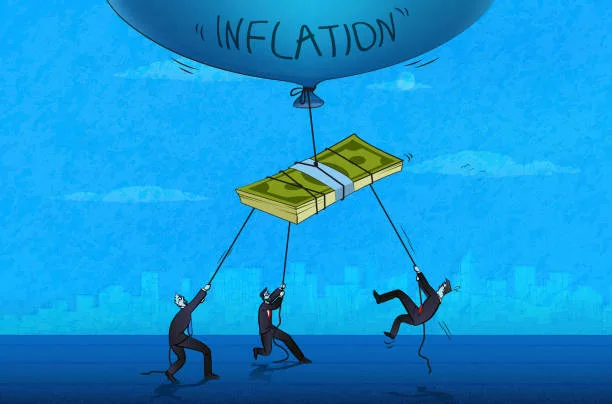Nigeria’s rising debt burden has become a serious concern, with projections showing that the country’s total debt could exceed ₦155 trillion by 2025.
This is a worrisome trend, as excessive borrowing can weaken the economy, reduce government spending on important sectors, and make life harder for ordinary Nigerians.
Join our WhatsApp ChannelMany people don’t fully understand how this crisis affects them, but the truth is that Nigeria’s debt situation has real consequences for its citizens.
Here are six alarming facts that explain why Nigeria’s growing debt crisis should matter to everyone.
1. Nigeria’s Debt Is Growing at an Unprecedented Rate
Nigeria has been borrowing money alarmingly, and the numbers don’t lie.
According to the United Nations Conference on Trade and Development (UNCTAD), many developing countries, including Nigeria, are struggling with mounting debt.
By 2025, Nigeria is expected to borrow an additional ₦13 trillion to fund the national budget. This will push the total debt beyond ₦155 trillion, making it harder for the government to manage its finances.
If borrowing continues at this rate without a corresponding increase in revenue, Nigeria may struggle to repay these loans, leading to more economic instability.
2. Debt Servicing Is Draining Nigeria’s Resources
One of the biggest problems with borrowing is that the money must be paid back with interest. This is where debt servicing comes in, which refers to the amount Nigeria spends to repay loans.
In January 2025, Nigeria spent $540 million on debt servicing. Although this figure was reduced to $276 million in February, it is still a significant drain on national resources.
To put this into perspective, money that could have been used to improve hospitals, schools, and roads is instead being used to pay back loans.
When a country spends too much on debt servicing, it has little left to invest in development, making life harder for its citizens.
3. The 2025 Budget Shows How Deep Nigeria’s Debt Problem Is
The ₦54.99 trillion budget for 2025 is the highest in Nigeria’s history, but a closer look reveals a concerning detail: ₦14.32 trillion is allocated just for debt repayment.
This means that over 25% of the entire budget will go toward paying back loans instead of financing critical sectors like healthcare, education, and infrastructure.
A country’s budget should focus on making life better for its people. However, with a significant chunk of Nigeria’s budget going into debt repayment, there is less money available to improve living conditions, which could slow down development.
4. Rising Debt and Inflation Could Push Millions into Poverty
Nigeria’s growing debt is affecting everyday Nigerians, especially through rising prices of goods and services.
Experts warn that if the government keeps borrowing excessively without improving revenue generation, it could lead to higher inflation.
Already, many Nigerians are struggling with the high cost of food, rent, and transportation.
Analysts predict that by 2025, another 13 million Nigerians could fall below the poverty line due to the combined effects of inflation and economic hardship caused by debt.
When a country borrows too much without a solid plan for economic growth, it can weaken the value of its currency and make essential goods even more expensive.
This means more people are struggling to afford necessities.
READ ALSO: Equity Market Records First Loss of The Week As Investors React To Market Conditions
5. Nigeria’s Debt Crisis Is Scaring Away Investors
Foreign investors play a big role in boosting a country’s economy. However, when a country has a poor financial reputation, investors become hesitant to do business there.
One report reveals that negative global perceptions about African economies contribute to higher borrowing costs.
Nigeria, like many other African nations, faces higher interest rates when borrowing money, partly due to these perceptions.
In fact, experts estimate that negative stereotypes cost African nations up to £3.2 billion per year in extra interest payments.
When investors avoid Nigeria due to concerns about its debt crisis, it leads to fewer job opportunities, slower economic growth, and reduced business expansion.
6. Experts Are Calling for Urgent Economic Reforms
Many economists and financial experts have raised the alarm about Nigeria’s growing debt problem. The Economic Commission for Africa (ECA) has listed Nigeria among several African nations facing a severe debt crisis.
To fix this problem, experts suggest:
- Generating more revenue by improving tax collection and reducing corruption.
- Reducing unnecessary borrowing and finding alternative ways to fund government projects.
- Controlling government spending to avoid wasteful expenses.
- Ensuring transparency and accountability in managing national finances.
If these measures are not taken, Nigeria risks falling deeper into a debt trap, where the country is forced to borrow more just to repay old debts, a situation that can lead to long-term financial struggles.
Conclusion
Nigeria’s growing debt crisis is not just a government problem; it affects everyone. From higher prices of goods to fewer job opportunities, the consequences of excessive borrowing are being felt across the country.
With debt levels projected to surpass ₦155 trillion by 2025, the Nigerian government must take immediate action to address this crisis.
If nothing is done, the country could face even worse economic conditions, making life more difficult for millions of Nigerians.
Elsie Udoh is an SEO content writer who specialises in writing engaging stories that resonates with diverse audiences. She studied mass communication at the Lagos State University.













